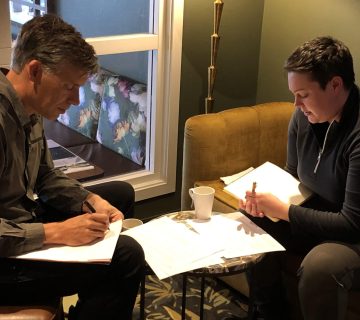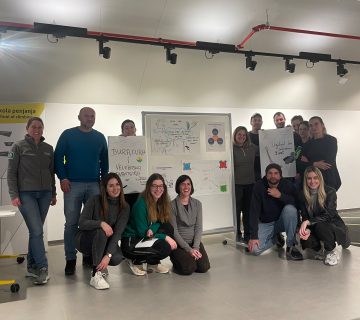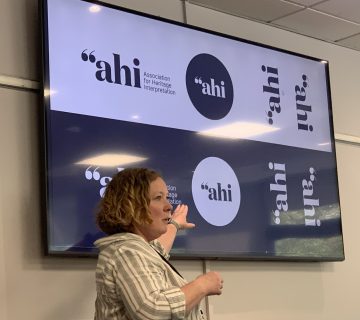Cultural Heritage without Borders first developed the Regional Restoration Camps as a means of providing hands-on experience for young restorers and conservators of historic buildings. However, as the project developed, it became a means of restoring not only buildings but also relations — relations between the people of the oft-divided nations of the Western Balkans and relations between people and their heritage. In this process, interpretation is playing an increasingly important role, becoming an integral component of the camps, as well as a training platform in its own right.
It’s a hot summer’s day, but Arben and Milica don’t notice. They’re examining the wall in front of them – a structure made of ancient stones, shaped and placed skilfully by a craftsman long ago. As they focus on the wall and on the problem of restoring it, the fact that Arben is Albanian and Milica is Serbian hardly crosses their minds. From this moment on, they are colleagues in protecting and preserving heritage.
This is a fictional account of a scene that has played out in reality hundreds of times at the Regional Restoration Camps. Cultural Heritage without Borders started the camps in 2007 as a means of building ties among the countries of the Western Balkans and providing students and young professionals with practical experience in heritage conservation. Now in their ninth year, the camps have grown from hosting a few students in Gjirokastra, Albania, to training a total of 652 participants from 26 countries at 6 locations across the Western Balkans. The intensive two-week program of the camps involves morning lectures on topics related to heritage conservation, interpretation, management and the like, along with hands-on work on a restoration/conservation project in the afternoon.
At CHwB, we have come to realise that heritage conservation efforts must be accompanied by interpretation. Interpretation is crucial for helping people to discover the value of heritage and encouraging them to play a role in preserving it. Therefore, as the camps developed, interpretation slowly began to take on a larger and larger role. Under the guidance of Dr. Diana Walters, the interpretation component of the camps grew from a single lecture into a daylong workshop. During these workshop days, participants take a break from their other activities to practice interpreting their site for various audiences.
The feedback from participants was encouraging. They approached the interpretation workshop days energetically and produced some very creative interpretive solutions for the places where they were working. By the end of the activity, many of the participants wanted to dig deeper. We answered this need by holding the first Regional Restoration Camp focused entirely on heritage interpretation, which took place last autumn in Prizren, Kosovo. During this camp, participants were guided through the process of developing interpretive trails for the historic city of Prizren. As is the case with the conservation-related camps, the results of the Interpretation camp in Prizren are being used to support a real project, which will result in an interpretive trail for Prizren Fortress.
This year, CHwB is organising seven Regional Restoration Camps – a record number. These camps will focus on themes of building conservation, museum artefact conservation, historical arts and crafts, heritage management and, of course, interpretation. Every camp will contain an interpretation component, but the upcoming camp in Shkodra, Albania, to be held July 9-20, will focus entirely on the twin themes of heritage interpretation and management. Through these activities, we are highlighting interpretation as a critical component of overall heritage management and preservation efforts. Interpretation is how we make heritage relevant for people; it is how we reach our goal of both restoring heritage and building relations.
Jonathan Eaton works for Cultural Heritage without Borders-Albania (CHwB), based in Tirana (chwb.org/albania). Currently, he is involved with projects involving heritage interpretation, historical dialogue and the development of a regional museum network. You can contact him at jonathan.eaton@chwb.org. To learn more about the CHwB Regional Restoration Camps, visit chwb.org/albania/rrc or email rrc@chwb.org.
To cite this article:
Eaton, J. (2016) ‘How interpretation restores relations’. In Interpret Europe Newsletter 1-2016, 11-12
Available online:
https://www.interpret-europe.net/fileadmin/Documents/publications/Newsletters/ie-newsletter_2016-1_spring.pdf




